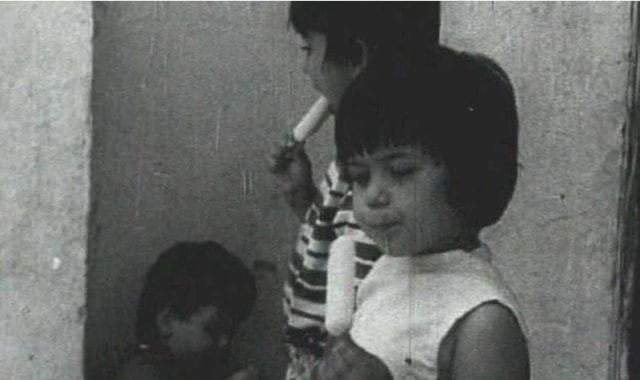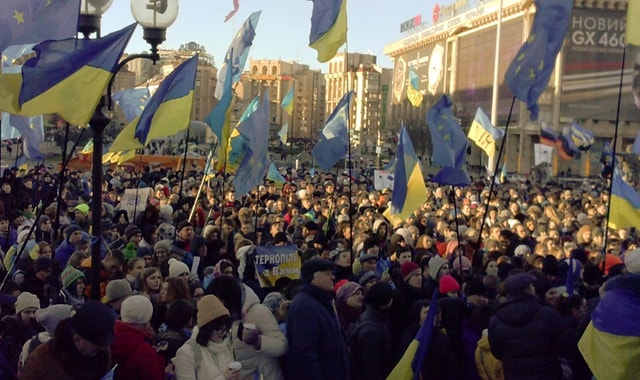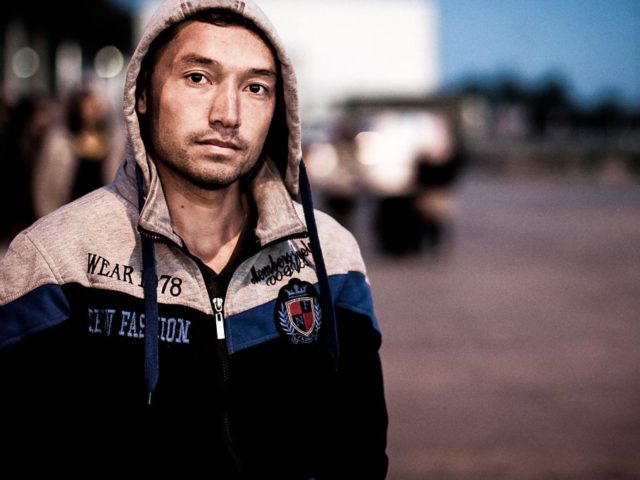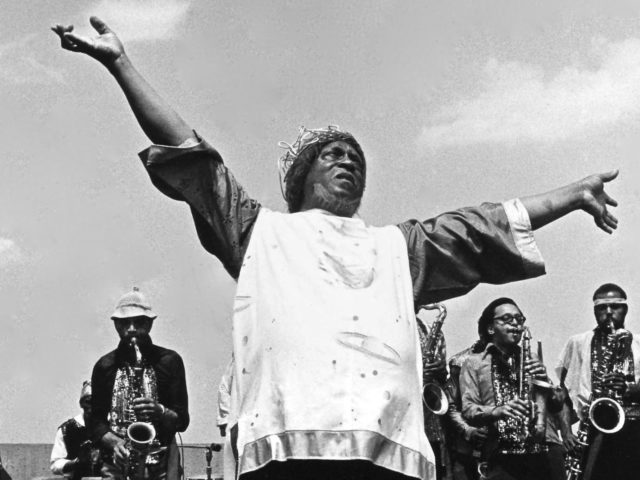As an introduction to Palestinian nonfiction cinema, in the run up to our event with Mai Masri on 13th Nov, filmmaker Saeed Taji Farouky has compiled this list of docs available online about Palestine and Palestinian people.
On Friday 13th November, we’ll be welcoming one of Palestine’s most distinguished filmmakers, Mai Masri, for a discussion and screening of her 2001 documentary Frontiers of Dreams and Fears.
With a career spanning three decades, Masri’s films are renowned for their intimate, creative storytelling, with the filmmaker giving agency to her subjects – often focusing on the unheard voices of women and children living in Palestine and Lebanon.
As an introduction to Palestinian nonfiction cinema, and to place Masri’s work within the context of this art form, filmmaker Saeed Taji Farouky has compiled this list of docs available online about Palestine and Palestinian people. These films help us learn more about the lived experience of Palestinians, as well as being an entry point to a rich and creative national cinema.

They Do Not Exist / Mustafa Abu Ali / 1974 / 25 Mins
Mustafa Abu Ali was a co-founder of the Palestine Film Unit and is considered one of the godfathers of Palestinian cinema.
This documentary of his, named for Israeli Prime Minister Golda Mier’s infamous quote that Palestinians “did not exist”, is a benchmark in Palestinian cinema, reflecting both a new vernacular in militant cinema and the experimental roots of creative Palestinian filmmaking.
This film, long though lost, was re-discovered in the 2003, thanks mostly to the efforts of filmmaker Annemarie Jacir. It’s rough, and reflects a didactic filmmaking that has since fallen out of favour, but its significance as a resurrected “founding document” of Palestinian cinema cannot be overstated.
Available for free on Vimeo.
Gaza Strip / James Longley / 2002 / 74 mins
The first of American independent director James Longley’s trilogy about children in conflict, Gaza Strip is an impressionistic fugue of humanity, innocence, and violence set against the backdrop of the Second Intifada.
Though the formal circumstances in Gaza have changed since the film was made in 2002, on the ground, the challenges, destitution, and occupation remain.
Available for free here.
Like Twenty Impossibles / Annemarie Jacir / 2003 / 17 mins
This early “documentary” short from Annemarie Jacir – one of the region’s leading filmmakers – remains a pioneer of Palestine’s reflexive filmmaking movement.
It takes the form of the behind-the-scenes outtakes of an aborted film shoot, interrupted by Israeli soldiers in the occupied West Bank, as the crew is stopped, interrogated, and detained. That it’s not a “real” documentary hardly matters, and the events that unfold will be instantly familiar to anyone who has ever travelled through Palestine.
The film is groundbreaking in form – its fragmented image and sound mirroring the psychology of occupation – and in the industry, marking the first Arab short film selected for the Cannes Film Festival, and the first female Arab director to walk the red carpet there.
Budrus / Julia Bacha / 2009 / 70 mins
Since the first Intifada (the popular uprising against the Israeli occupation which ran from around 1987 – 1991) Palestinian resistance has relied more and more on self-mobilised, civil-society groups who have felt abandoned by mainstream Palestinian political leadership.
Budrus tells the story of a village’s non-violent resistance campaign against the construction of Israel’s wall that would cut the villagers off from their farmland. Director Julia Bacha tirelessly follows the local, self-organised protest by Ayed Morrar and his family as it balloons into a movement of international solidarity and a symbol of Palestine’s burgeoning, highly-organised strategy of non-violent resistance.
5 Broken Cameras / Emad Burnat & Guy Davidi / 2011 / 90 mins
The first Palestinian film nominated for an Academy Award for best documentary feature, 5 Broken Cameras is a complicated and controversial beast. Emerging from the same civil-society protest movement as Budrus, above, the film charts Emad Burnat’s experiences leading the anti-wall demonstrations in his village of Bil’in.
When Burnat, five years into filming, started working with Israeli filmmaker Guy Davidi, supported by Israeli national film funding, both Palestinians and Israelis accused the two of betraying their people.
Nevertheless, the film beautifully represents Burnat’s struggle both as a political leader and a father. It significantly lifted the profile of Palestinian documentary filmmaking, and is a touchstone in the creative treatment of non-fiction material.
Available online here.
A World Not Ours / Mahdi Fleifel / 2012 / 93 mins
Ain el-Helweh is Lebanon’s largest refugee camp, home to over 70,000 displaced Palestinians. In this personal study, director Mahdi Fleifel combines his own footage with that of his father’s from the 80s and 90s, to present an intimate portrait of the place where he was born.
A bittersweet cinematic essay, A World Not Ours is a refreshing look at the friendships, laughter, hope and despair that comprise daily life for those living in exile in Lebanon’s refugee camps.
Available on Vimeo On Demand.
The Wanted 18 / Amer Shomali, Paul Cowan / 2014 / 75 mins
When the residents of Beit Sahour tried raising their own dairy cows in the 1980s as part of the boycott of Israeli goods, their project was so radical it was declared a threat to Israel’s national security.
Through animation, recreation, and wry humour, Amer Shomali and Paul Cowan tell the equally inspiring and ridiculous tale of how 18 “intifada milk” cows became fugitives in the Palestinians’ pursuit of self-sufficiency.
Available online here.
Trip Along Exodus / Hind Shoufani / 2014 / 120 mins
Director Hind Shoufani is a writer, poet, translator, and filmmaker. It’s no surprise, then, that this exploration of the life of her father – a leader of the PLO, an intellectual, an academic, and an opposition figure to Arafat – would emerge as the multi-media film poem that it is.
The film is framed as an investigation into why her father left his Ivy League university job in the US to join the Palestinian resistance, only to then turn on its father figure, but what emerges is a mediation on identity, parenthood, memory and the complex and often contradictory hopes of a liberation movement.
Watch it online here.
Open Bethlehem / Leila Sansour / 2014 / 90 mins
Leila Sansour, who embraced the Palestinian appreciation of dark humour with her 2003 film Jeremy Hardy vs The Israeli Army, returned to her home town of Bethleham for this poetic ode to a city under seige.
Despite being one of the world’s holiest cities, Bethleham is strangled by Israel’s wall, and Sansour’s peripatetic journey chronicles at once her return from exile to a (now unrecognisable) hometown, the struggles of the city’s inhabitants to move around freely, and the pain of the world’s believers in seeing their beloved city in handcuffs.
Watch it online here.
Off Frame AKA Revolution Until Victory / Mohanad Yaqubi / 2015 / 62 mins
The Palestine Film Unit was founded in 1968 as the militant cinema counterpart of the Palestinian resistance. But in 1982, all their work – and documentary film footage of Palestinian life from previous decades – was stolen during the Israeli invasion of Beirut, most likely by the Israeli military themselves. This irreplaceable loss of visual representation has haunted Palestinian culture ever since.
Monahad Yaqubi, working from rare and long-forgotten copies of some of this footage, crafts an absorbing personal analysis by reinterpreting and recontextualising the footage, exploring what it means to lose your visual culture, the power of cinema as a weapon, and the continuing struggle for Palestinians to represent their own narratives.
Available online here.
Speed Sisters / Amber Fares / 2015 / 80 mins
Amber Fares’ first feature-length documentary – a profile of the bold, obsessive, and endearing characters of the Arab World’s first all-female racing team – reminds us that, although the conflict and occupation are ever-present, sometimes Palestinians just want to enjoy life.
The irony is delicious: the drivers dedicate their lives to motor-racing in a nation where driving is severely restricted by a network of checkpoints, walls, and segregated roads.
The film’s unconventional and nuanced female characters, and the director’s perspective on them, are essential to understanding the passions, joys, frustrations, and complexities of Palestinian life.
Available online here.
Ambulance / Mohamed Jabaly / 2016 / 80 mins
Filmed during the war on Gaza in the summer of 2014 (Operation Protective Edge), Ambulance is a terrifying, intimate portrait of an ambulance crew in Gaza City, trying desperately to save the war’s victims while becoming targets themselves.
Mohamad Jabaly’s compulsion to return, night after night, to film with the crew despite the obvious dangers soon becomes a way for the young director to understand his own purpose in life and to contemplate his future in Gaza.
Available online here.
Ghost Hunting / Raed Andoni / 2017 / 94 mins
Raed Andoni’s twisted variation on the Stanford Prison Experiment sees Palestinian former detainees build and populate a copy of the infamous Al-Moscobiya interrogation centre where they were once held.
When they recreate their own experiences, some playing guards and some detainees, the result is both disturbing and surprisingly cathartic. The film manipulates fact and fiction in a seamless virtuous/vicious circle, and the final result – an exorcism of Andoni’s own ghosts – becomes a comment on the visual representation of the Palestinian experience itself.
Available here (but not in the UK),


